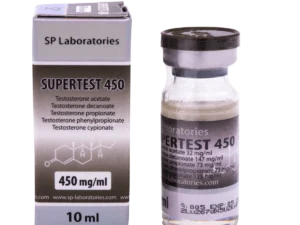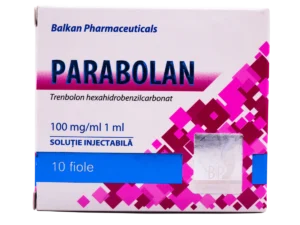
Diet for Gaining Muscle Mass: Unlocking Your Full Potential
Are you looking to pack on some serious muscle mass and transform your physique? If so, then you’ve come to the right place. Building muscle requires more than just hitting the gym and lifting weights – it also requires a strategic and well-planned diet. In this article, we will delve into the world of nutrition for muscle gain and provide you with practical insights and recommendations to help you reach your goals.
When it comes to gaining muscle mass, nutrition plays a pivotal role. Your diet acts as the fuel that powers your workouts and helps your body recover and grow. Without the proper nutrients, your muscles won’t have the necessary building blocks to repair and strengthen themselves, ultimately hindering your progress.
So, what exactly should you be eating to maximize muscle growth? The key lies in understanding the importance of macronutrients – protein, carbohydrates, and fats. Protein is the cornerstone of any muscle-building diet, as it provides the amino acids necessary for muscle repair and growth. Carbohydrates, on the other hand, serve as the primary source of energy for intense workouts, while fats play a crucial role in hormone production and overall health.
But it’s not just about the macronutrients. The timing and distribution of your meals throughout the day also play a significant role in muscle gain. Consuming a well-balanced meal or snack before and after your workouts can optimize muscle protein synthesis and enhance recovery. Additionally, spreading your protein intake evenly throughout the day can help maintain a positive nitrogen balance, promoting muscle growth.
While a proper diet for muscle gain focuses on the right nutrients and meal timing, it’s also essential to consider overall caloric intake. To build muscle, you need to consume more calories than you burn. However, it’s crucial to strike a balance and avoid excessive calorie surplus, as it can lead to unwanted fat gain. Finding your individual caloric needs and adjusting them based on your progress is key to achieving lean muscle mass.
In this article, we will provide you with practical recommendations on structuring your diet for muscle gain. From calculating your macronutrient ratios to creating meal plans and addressing common challenges, we’ve got you covered. Whether you’re a beginner or an experienced lifter, this comprehensive guide will equip you with the knowledge and tools to take your muscle-building journey to the next level.
So, are you ready to unlock your full potential and sculpt the physique you’ve always desired? Let’s dive into the world of muscle-building nutrition and discover the power of a well-designed diet.
The Science Behind Muscle Gain: Unlocking the Power of Nutrition
When it comes to building muscle mass, your diet is just as important as your training regimen. Proper nutrition provides your body with the necessary nutrients to repair and grow muscles, leading to significant gains in strength and size. Let’s explore the key components of a diet for gaining muscle mass.
1. Protein: The Building Blocks of Muscle
Protein is the foundation of any muscle-building diet. It contains essential amino acids that are crucial for muscle repair and growth. Aim to consume high-quality protein sources such as lean meats, poultry, fish, eggs, dairy products, and plant-based proteins like beans and legumes.
Experts recommend consuming around 1.2-2 grams of protein per kilogram of body weight per day for muscle gain. Distribute your protein intake evenly throughout the day to optimize muscle protein synthesis, which is the process of building new muscle tissue.
2. Carbohydrates: Fuel for Intense Workouts
Carbohydrates are your body’s primary source of energy, especially during intense workouts. They provide the fuel needed to power through your training sessions and support muscle recovery. Opt for complex carbohydrates like whole grains, fruits, vegetables, and legumes.
While it’s essential to consume an adequate amount of carbohydrates, the timing of your intake is crucial. Prioritize consuming carbohydrates before and after your workouts to replenish glycogen stores and support muscle repair.
3. Fats: Essential for Hormone Production and Health
Fats often get a bad reputation, but they are an essential part of a muscle-building diet. Healthy fats, such as those found in avocados, nuts, seeds, and olive oil, play a crucial role in hormone production, which is vital for muscle growth and overall health.
Include a moderate amount of healthy fats in your diet, aiming for around 20-30% of your total daily caloric intake. Avoid excessive consumption of saturated and trans fats, as they can negatively impact your health.
4. Caloric Surplus: Finding the Right Balance
To gain muscle mass, you need to consume more calories than you burn. This creates a caloric surplus that provides your body with the energy it needs for muscle growth. However, it’s crucial to strike a balance and avoid excessive calorie intake, as it can lead to unwanted fat gain.
Calculate your daily caloric needs based on your age, gender, weight, activity level, and goals. Aim for a moderate caloric surplus of around 250-500 calories per day to support muscle growth without excessive fat gain.
5. Meal Timing and Frequency: Optimizing Muscle Protein Synthesis
When it comes to muscle gain, the timing and frequency of your meals can significantly impact your results. Consuming a well-balanced meal or snack before and after your workouts can optimize muscle protein synthesis and enhance recovery.
Additionally, spreading your protein intake evenly throughout the day can help maintain a positive nitrogen balance, which is essential for muscle growth. Aim for 4-6 meals or snacks per day, ensuring each includes a good source of protein.
Conclusions
Achieving your muscle gain goals requires a comprehensive approach that combines proper training with a well-designed diet. Focus on consuming adequate protein, carbohydrates, and healthy fats to provide your body with the necessary nutrients for muscle repair and growth.
Remember to calculate your caloric needs and aim for a moderate caloric surplus to avoid excessive fat gain. Finally, pay attention to the timing and distribution of your meals to optimize muscle protein synthesis and support recovery.
By following these principles and making consistent efforts, you can unlock your full potential and achieve the muscle mass you desire. Stay dedicated, stay disciplined, and enjoy the journey towards a stronger, more muscular you!
Practical Recommendations for Gaining Muscle Mass
1. Calculate Your Macronutrient Ratios
Start by determining the optimal macronutrient ratios for your muscle-building goals. Aim to consume around 25-35% of your total daily calories from protein, 45-55% from carbohydrates, and 20-30% from healthy fats. Adjust these ratios based on your individual preferences and responses.
2. Prioritize Protein Timing
Ensure that you consume a good source of protein before and after your workouts to maximize muscle protein synthesis and support recovery. Aim for 20-40 grams of protein per meal or snack, depending on your body weight and goals.
3. Choose High-Quality Protein Sources
Opt for lean meats, poultry, fish, eggs, dairy products, and plant-based protein sources to meet your protein needs. These options provide essential amino acids and are rich in nutrients necessary for muscle growth.
4. Include Complex Carbohydrates
Focus on consuming complex carbohydrates such as whole grains, fruits, vegetables, and legumes. These provide sustained energy and important nutrients to support your workouts and muscle recovery.
5. Don’t Neglect Healthy Fats
Incorporate healthy fats into your diet, including avocados, nuts, seeds, and olive oil. These fats are essential for hormone production and overall health. Be mindful of portion sizes, as fats are calorie-dense.
6. Stay Hydrated
Hydration is often overlooked but is crucial for optimal muscle function and recovery. Aim to drink at least 8-10 glasses of water per day and increase your intake during intense workouts or hot weather.
7. Plan and Prepare Your Meals
Take the time to plan and prepare your meals in advance. This will ensure that you have nutritious options readily available and avoid relying on unhealthy convenience foods. Meal prepping can help you stay on track with your muscle-building diet.
8. Monitor Your Progress and Adjust Accordingly
Regularly assess your progress and make adjustments to your diet as needed. Track your body weight, body fat percentage, and strength gains to gauge your progress. If you’re not seeing the desired results, consider adjusting your caloric intake or macronutrient ratios.
9. Seek Professional Guidance
If you’re unsure about designing a diet plan for muscle gain, consider consulting with a registered dietitian or nutritionist. They can provide personalized recommendations based on your specific needs and goals.
10. Stay Consistent and Patient
Building muscle mass takes time and dedication. Stay consistent with your diet and training, and be patient with the results. Remember that sustainable progress is achieved through long-term lifestyle changes rather than quick fixes.
By implementing these practical recommendations into your daily routine, you’ll be well on your way to achieving your muscle gain goals. Stay committed, stay disciplined, and enjoy the journey towards a stronger, more muscular you!






